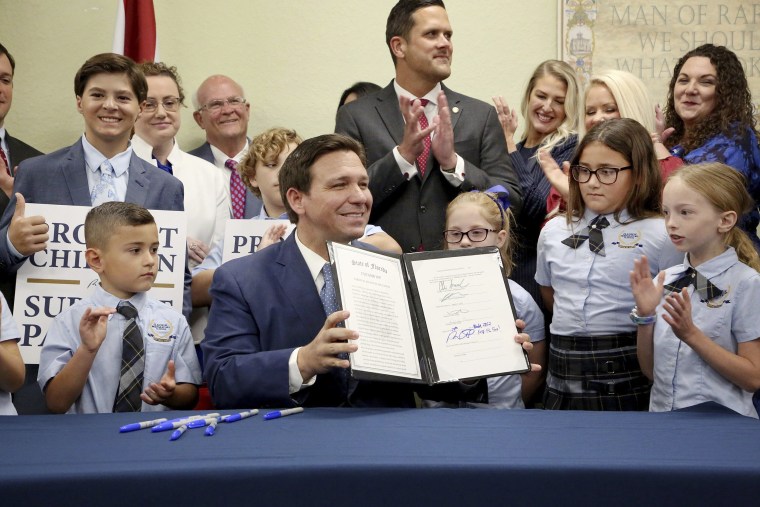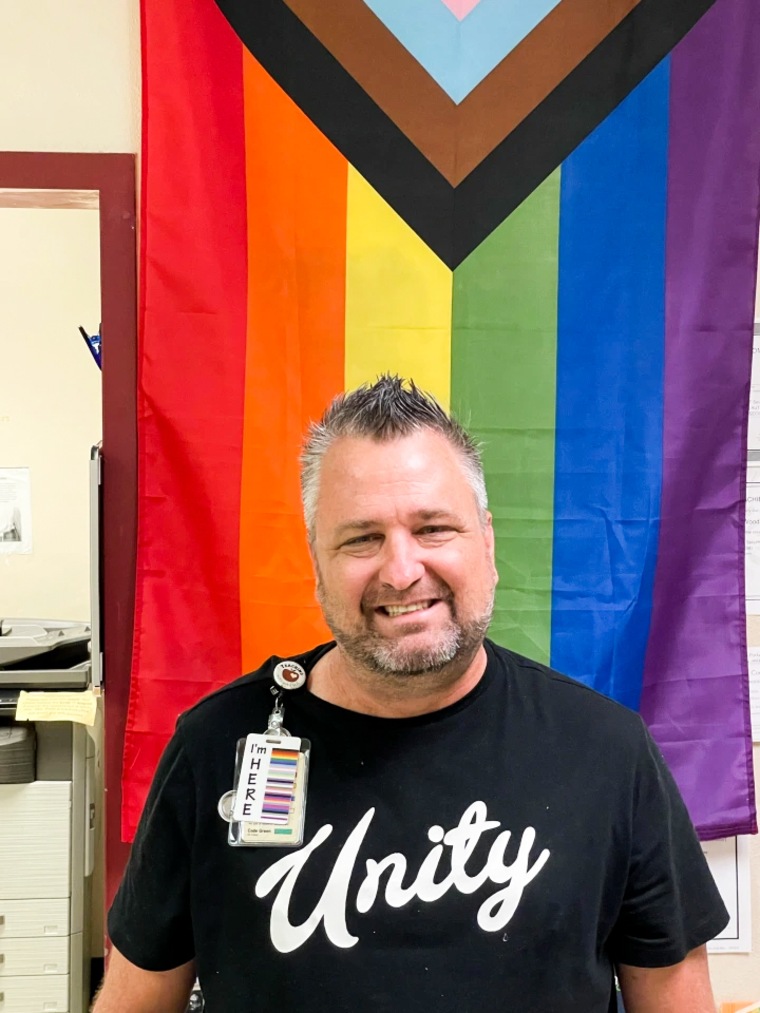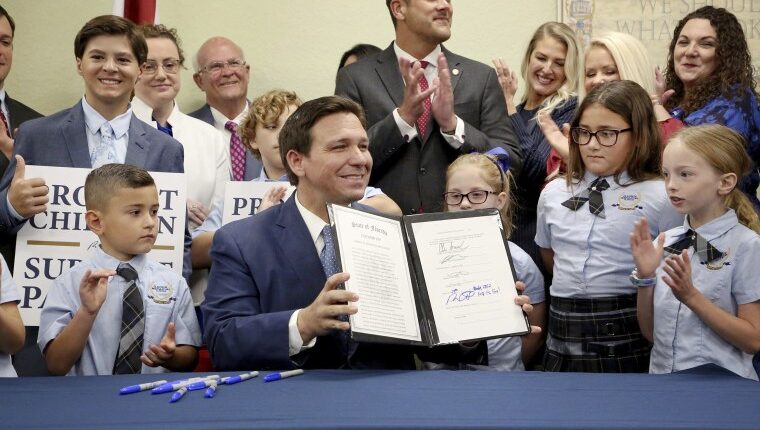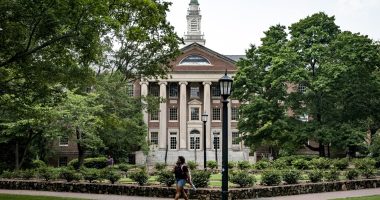By the time the Florida Legislature kicked off its 2023 session Tuesday, Republican lawmakers had already pre-filed a trio of bills that would expand a recently enacted education law that restricts instruction on sexual orientation and gender identity.
Nearly a year ago, Gov. Ron DeSantis signed the Parental Rights in Education bill, or what critics have dubbed the “Don’t Say Gay” law. The measure prohibits “classroom instruction by school personnel or third parties on sexual orientation or gender identity” in kindergarten through third grade “or in a manner that is not age appropriate or developmentally appropriate for students in accordance with state standards.”

State Rep. Adam Anderson filed a measure last week that would expand the law by prohibiting classroom instruction on sexual orientation or gender identity in prekindergarten through eighth grade. And if such instruction is provided in grades nine through 12, it “must be age-appropriate or developmentally appropriate for students in accordance with state standards.”
The bill, HB 1223, would extend to charter schools and private pre-K programs, which are excluded under the current education law.
Anderson’s bill, which had two additional co-sponsors as of Wednesday morning, would also enact a statewide definition of “sex” as “the binary division of individuals based upon reproductive function” and “an immutable biological trait.” As a result, the bill says, “it is false to ascribe to a person a pronoun that does not correspond to such person’s sex.” The measure would prohibit schools from requiring personnel, contractors and students to use a pronoun or title for someone if they don’t correspond to a person’s assigned sex at birth. It would also bar school personnel from sharing their pronouns or titles if those don’t align with their birth sex.
Anderson did not respond to NBC News’ request for comment.

Michael Woods, a special education teacher at a high school in Palm Beach County, said lawmakers aren’t addressing the real needs of schools in the state. His school, for example, is short about seven special education teachers, he said. Statewide, there are more than 5,000 teacher vacancies, the Orlando Sentinel reported in January.
“I don’t understand why banning pronouns is more important than hiring teachers, getting cost-effective insurance, making sure people can buy houses,” Woods said. “Instead of addressing issues like why are we short so many teachers, why are we missing seven teachers, they’ve chosen to double down this year on ‘Don’t Say Gay’ and just really crazy requirements.”
State Rep. Stan McClain and state Sen. Clay Yarborough, both Republicans, introduced bills similar to Anderson’s that would also regulate education on reproductive health and would require school districts to create a process that allows parents to object to books in teachers’ classroom libraries.
Florida schools currently provide health education to all grade levels, which addresses over a dozen components, including environmental health, nutrition and substance use. Students in grades six through 12 additionally receive instruction on “the benefits of sexual abstinence as the expected standard and the consequences of teenage pregnancy.” Schools are not required to provide sex education, but when they provide education on HIV/AIDS, they must have curriculums approved by their school board.
McClain’s bill, HB 1069, would restrict instruction on reproductive health to sixth through 12th grade. Among its provisions, the bill would require schools to teach “that sex is determined by biology and reproductive function at birth; that biological males impregnate biological females by fertilizing the female egg with male sperm; that the female then gestates the offspring; and that these reproductive roles are binary, stable, and unchangeable.”
McClain did not respond to requests for comment.
Yarborough’s bill, SB 1320, titled “Child Protection in Public Schools,” is similar to McClain’s but would restrict instruction on reproductive health to grades nine through 12. The bill has one additional co-sponsor.
In an emailed statement, Yarborough said he believes parents have the right and “God-given responsibility” to direct their children’s upbringing.
“The decision about when and if certain topics should be introduced to young children belongs to parents, who should not have to worry that students are receiving classroom instruction on topics and materials the parents feel are not age-appropriate,” Yarborough said in the statement. “The bill also protects students and teachers from being forced to use language that would violate their personal convictions.”
He added: “Every family is different, and children mature at different rates. The place for instruction on sexual orientation and gender identity is in the home, guided by the parents, if they deem appropriate.”
Woods said he isn’t surprised that lawmakers are trying to expand the Parental Rights in Education law. In fact, when he spoke to NBC News in August about how his school was implementing the law, he predicted that it would be expanded to more grade levels in the future.
Woods, who is gay, said he wants to re-establish his school’s Gender-Sexuality Alliance, or GSA, which is a club for LGBTQ students and their allies, but he isn’t sure how the law would affect it.
“There’s a lack of feedback from the state; I can’t put myself out there,” he said, referring to what he described as the law’s vagueness. “I’m mad at myself, because I feel like I’ve let the kids down.”
However, he added, “it’s a law regardless of how I feel as a human — a law is still law.”
So far this year, Florida lawmakers have filed at least 11 bills targeting LGBTQ people, while lawmakers nationwide have filed more than 380 such bills, according to the American Civil Liberties Union and a separate group of researchers who are tracking the flow of legislation.
Source: | This article originally belongs to Nbcnews.com










